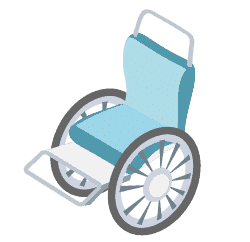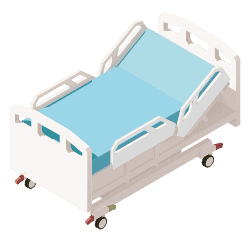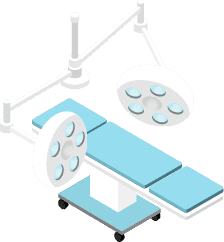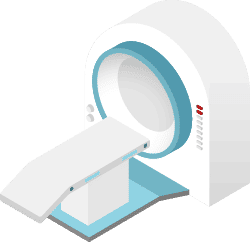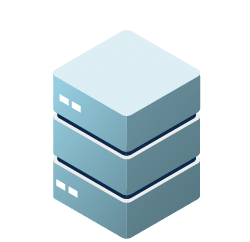
HOSPITALWEB
Mental health needs are increasingly complex, requiring high-performance tools to ensure optimal care.
WebHospital, as an Electronic Patient Record (EPR) is perfectly adapted to psychiatric practice and offers specific functionalities to meet the challenges of this medical field.
Detailed longitudinal monitoring to improve continuity of care
Thanks to HospitalWeb, psychiatric professionals can track the progress of patients’ mental disorders from a global perspective. The file includes a detailed history of hospitalisations, past treatments (medication, therapies), and even family histories. This information is organised in the form of a timeline, making it easy to access critical data quickly.
In addition, the software enables periodic assessment of mental state, including emotional and cognitive states such as depressive or manic episodes. This longitudinal approach enables treatment to be adapted continuously and precisely, while guaranteeing individualised care.
An integrated multidimensional assessment
What sets HospitalWeb apart is the integration of standardised assessment tools such as the MMSE (Mini-Mental State Examination or Folstein Test) or the PCL-5 (Posttraumatic stress disorder CheckList-5), enabling more accurate diagnoses and rigorous monitoring of symptom progression.
These two tools, MMSE and PCL-5, are essential for ensuring optimum care for psychiatric patients. Their integration into HopitalWeb makes it easier to assess, monitor and adapt care to patients’ specific needs.
In addition to the purely psychiatric aspects, the tool offers a complete view of the patient’s state of health, taking somatic assessments into account. This global assessment helps care teams to adjust care according to the specific needs of each patient, thereby optimising the quality of interventions.
Key tool in psychiatry: MMSE (Mini-Mental State Examination)
The MMSE, or Folstein Test, is a neuropsychological test commonly used to assess a patient’s cognitive functions. It can be used to detect early signs of dementia, mild cognitive impairment or disorientation. The test assesses several cognitive domains, including :
- Orientation (in time and space),
- Short-term memory,
- Attention and calculation,
- language,
- Visual-spatial construction.
The MMSE generates a score out of 30 points. A score of less than 24 may indicate cognitive impairment requiring further assessment. This tool is often used to monitor the progress of neurodegenerative diseases such as Alzheimer’s. HospitalWeb integrates the MMSE to facilitate patient monitoring, enabling regular assessment of cognitive status and adaptation of treatments according to the results.
Key psychiatric tool: PCL-5 (Posttraumatic Stress Disorder CheckList-5)
The PCL-5 is a tool used to assess symptoms of post-traumatic stress disorder (PTSD) according to DSM-5 criteria. It is a self-assessment questionnaire consisting of 20 items that measure the frequency and intensity of PTSD symptoms in a patient who has experienced a traumatic event. The PCL-5 explores four domains:
- Reliving the traumatic event,
- Avoidance of thoughts and memories related to the trauma,
- Negative changes in thoughts and mood,
- Hyper-reactivity (irritability, difficulty concentrating, sleep problems).
Each response is scored from 0 to 4, giving a total score out of 80. A high score indicates the presence of significant symptoms of PTSD, requiring psychotherapeutic or drug treatment. Thanks to HospitalWeb, healthcare professionals can monitor the development of post-traumatic symptoms over time and adjust treatments precisely.
Managing complex treatments and preventing risks
HospitalWeb makes it easier to manage psychotropic drugs, which are often tricky in psychiatry. The PGD makes it possible to monitor dosages, document side effects and monitor drug interactions. The progressive and degressive prescription functionality is particularly useful for adjusting treatments over time. At the same time, the file documents adherence to treatment, a crucial factor in avoiding relapses or complications linked to poor adherence to treatment. The tool also incorporates alerts to prevent the risk of suicide or self-harm, thereby enhancing patient safety.
Psycho-educational aspects and rehabilitation
Psychiatric treatment does not stop at medical care. HospitalWeb includes tools for monitoring psychosocial rehabilitation programmes and cognitive behavioural therapies. These functions enable carers to monitor patients’ progress through their rehabilitation pathway, with access to psycho-educational resources directly available in the DPI. This information helps patients to better understand and manage their disease, promoting their autonomy and improving adherence to treatment. This holistic approach strengthens the educational role of healthcare teams, while facilitating successful reintegration into everyday life.
Interdisciplinary coordination and respect for confidentiality
HospitalWeb promotes fluid communication between the various players involved in patient care: psychiatrists, psychologists, social workers and nurses. Staff meetings are made easier, guaranteeing coordinated, comprehensive care. In addition, confidentiality is at the heart of the system, with strict management of consent and enhanced protection of sensitive data.
An ergonomic, customisable tool
Designed to be intuitive and easy to use, HospitalWeb enables information to be entered quickly. It also offers advanced customisation, enabling professionals to adapt the interface to their own preferences or those of the patient, in particular through filters and modular page layouts.
